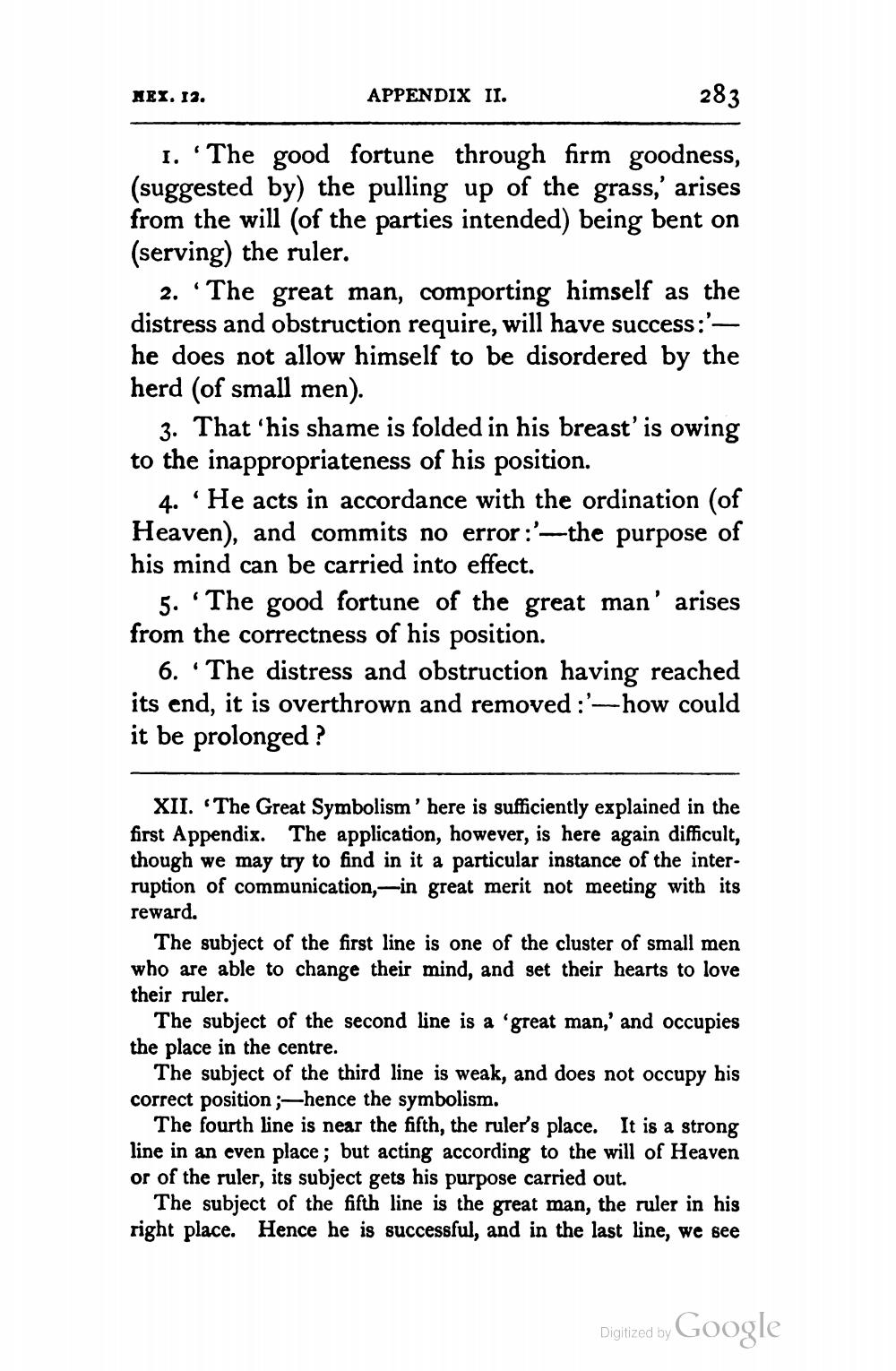________________
AEX. 13.
APPENDIX II.
283
1. “The good fortune through firm goodness, (suggested by) the pulling up of the grass,' arises from the will (of the parties intended) being bent on (serving) the ruler.
2. “The great man, comporting himself as the distress and obstruction require, will have success:'he does not allow himself to be disordered by the herd (of small men).
3. That ‘his shame is folded in his breast'is owing to the inappropriateness of his position.
4. He acts in accordance with the ordination (of Heaven), and commits no error:'--the purpose of his mind can be carried into effect.
5. The good fortune of the great man' arises from the correctness of his position.
6. The distress and obstruction having reached its end, it is overthrown and removed :'-how could it be prolonged ?
XII. "The Great Symbolism' here is sufficiently explained in the first Appendix. The application, however, is here again difficult, though we may try to find in it a particular instance of the interruption of communication,-in great merit not meeting with its reward.
The subject of the first line is one of the cluster of small men who are able to change their mind, and set their hearts to love their ruler.
The subject of the second line is a 'great man,' and occupies the place in the centre.
The subject of the third line is weak, and does not occupy his correct position ;-hence the symbolism.
The fourth line is near the fifth, the ruler's place. It is a strong line in an even place; but acting according to the will of Heaven or of the ruler, its subject gets his purpose carried out.
The subject of the fifth line is the great man, the ruler in his right place. Hence he is successful, and in the last line, we see
Digitized by Google




